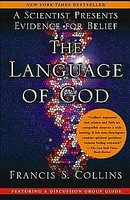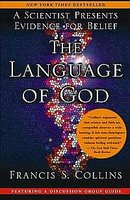
Regular visitors to this site may remember that for a number of years now, I've been one of the fiction editors at the Canadian SF magazine
On Spec. They first approached me back in 1999; I've served pretty much continuously since, except for a brief hiatus back in 2001 when I felt that the fear of losing government funding had made the magazine too timid. But we worked it out. We cobbled together something called the
Clifford Burns Memorial Anti-Veto Bomb: if any of us really fell in love with a piece,
really fell in love with it, we could force it onto the schedule even if all the other editors hated it. Each editor was allowed only two bombs annually, so we wouldn't waste them on anything we weren't willing to go to the mat for.
While that Bomb has been dropped since, I have never felt the need to invoke it myself. It was intended as a last resort, after all, and truly controversial stories don't come our way very often. But if they did, I knew we were ready. The Bomb gave me comfort. I slept soundly at night.
Time passed. Some terrific stories appeared in our little rag.
On Spec gave a home to the likes of Holly Phillips, Catherine MacLeod, Hayden Trenholm, Elaine Chen, Leah Bobet. I am so fucking proud to have helped showcase these people, and more others than I can count (Mrissa, you there?). Cory Doctorow even nested in our pages — before he ascended into heaven with the angels — and Cliff Burns returned to grace us with a tale or two (albeit not the one which had inspired the bomb in the first place).
The world turned; so did the masthead. Fellow scribes Holly Phillips and Derryl Murphy came and went. Susan MacGregor came and went and came back again. Steve Mohn came and stayed (you may remember the running
debate he and I got into over Jackson's
Lord of the Rings trilogy a few years back). Jena Snyder, Editrix from the start (think of her as Ian Anderson to
On Spec's Jethro Tull) — gave heart and soul and midwifed a thousand literary births. But
On Spec is a hungry bitch as well as a beautiful one, and Jena had her own tales to tell; eventually she had to take back her life and her passion for writing. Diane Walton replaced her as General Editor a few years back.
And all this time the Clifford Burns Memorial AntiVeto Bomb sat snuggled safely in the back of my mind, never to be used except at the utmost end of need...
The Present Day. Diane Walton asks me to write an editorial for the next issue of
On Spec. I mull over themes, decide: I will write a celebration of the one thing Hollywood and Electronic Arts has left us after they kicked sand in our faces and stole all our shiny spaceships and Big Dumb Objects and Bug-Eyed Monsters. Multimedia has taken away our special effects, you see. The galactic tour, the epic sensawunda vistas: you don't have to squeeze those images from rows of black type anymore, like some pagan divining meaning in rows of ants. You can sit back and let Spielberg
show it to you, big as life. You can
live it, thanks to Valve and BioWare. People don't have to
read for their eyeball kicks any more. There's purer product as close as the nearest torrent.
So what did those big bullies leave behind? What did they value so little they didn’t even bother to
steal? Why,
ideas. (Take your average Hollywood fx blockbuster, turn it upside-down, and shake it. See any
ideas come out?) And not just
any ideas.
Radical ideas.
Dangerous ideas. The kind of ideas that timid, bottom-line bean counters would never risk letting into their big-budget movies for fear of losing some vital demographic. Sturgeon's "If All Men Were Brothers Would You Let One Marry Your Sister?", exploring the ramifications of a human society with no incest taboo. Moorcock's "Behold the Man", a searing time-travel odyssey in which the search for faith leads to Mary on the make and a drooling, idiot Jesus. Delany's
Dhalgren, about — well, actually, I'm still not sure
what that one was about, but it had a lot of gay porn and Bellona stays stuck to the roof of my mind like peanut butter...
That is where literary sf retains its edge.
That is the high ground the lowest common denominator hasn't yet stolen along with our lunch money. So that's where we plant our flag, that is what we celebrate: dangerous ideas. And we at
On Spec have got the
right to celebrate it, by Jove! We don't just walk the walk, we put our money where our mouths are! We've got the Clifford Burns Memorial Anti Veto Bomb!
And Diane Walton says, Yes, Great! Good subject for an editorial! Just don't do anything that would make it, you know,
controversial...
Because you see, I'd wanted to take a token back from the visual arts. I'd wanted to illustrate my editorial with a picture of Mohammed in a spacesuit.
No, Diane says.
Well, wait a minute, say a couple of the other OSers (not me; I'm on the road at this point, and only intermittently online). Why not? It fits. We should go with it.
No, Diane says.
By this time I'm back online, and I say "I'd rather everyone was on the same page on this, but I suppose I could just invoke The Bomb."
Now Susan MacGregor weighs in. Susan and I have always got along despite her misguided devotion to imaginary friends, but now she's saying we should just revoke the Bomb altogether. She calls it "juvenile". She invokes the spectre of an editor using
On Spec to promote the rape of children, and of all the other editors having to nod and act as though they agree. (You ever notice that the folks who invoke victimized children whenever their beliefs are challenged have a certain — er, how to put this — common mind-set?)
Oddly enough, this is all going down one year to the day after that Danish newspaper originally published those Mohammed cartoons that started the whole kerfuffel. The same newspaper is reprinting some of them, to commemorate the anniversary and to celebrate free speech. So are a number of others, one being Canada's
National Post — hardly a bastion of radical thought. I try to point this out: we're not even talking about doing anything especially provocative at this point, we're talking about jumping on a bloody bandwagon. OS doesn't even have the yarbles for
that? But before I can hit Send, Steve jumps in and rebuts Susan's argument. Someone else says Hey, I know a couple of Muslim academics, I could always get their take—
At which point Diane, evidently realizing that three out of five seem to be in favour of running with the Mohammed riff, puts her foot down:
"The CBMAVB is a joke," she says, and
"Don't get the idea that this magazine is a democracy. There will be no "Mohammed" or "Jesus" or "Buddha" or any religious icon you care to name cartoon on our editorial page."
The thing is, I'd always been under the impression that our little magazine
was a democracy. And I rather got the impression that the others thought so too. And I can't help noticing that Diane Walton has taken this opportunity to preemptively veto not just icons of Mohammed, but of
any religious personality, period. Which I guess means we won't be running any pictures of L. Ron Hubbard in the near future either.
And The Bomb — the very reason for my continued presence at On Spec, my first, last, and only reassurance that we will not shy away from provocative ideas — is "a joke". On me. Evidently it always has been.
Back in the day,
On Spec had the balls to publish good stories, period, even those deemed too controversial for other markets. I know this, because they published such work from me before I joined. And there were a
lot of those good days.
On Spec approaches its twentieth anniversary, its legacy significant and undiminished by recent events. Its cover art continues to kick the asses of much larger magazines. And there are many serviceable, safe, inoffensive stories in the world; as long as 80% of them are Canadian,
On Spec will continue to play a valuable role.
But it is not the role I was told it would be, nor one I can get behind.
Understand this: good people work at
On Spec, and they work hard. Current policies in this regard are
not based on consensus: they have been autocratically imposed by someone with no significant writing credentials, but through whom vital funding passes. She controls the purse-strings; this puts her in de facto control. My fear and my expectation is that as long as that's the case
On Spec will blend ever further into the background, forever unwilling to risk notice for fear of losing the government teat. Or perhaps just out of fear of offending the sensibilities of Diane Walton. At this point I don't really know which.
In either case, I'm outta there. I resigned on Saturday.
Update 2211: Steve Mohn has now also resigned in protest over Diane's behaviour. He did ask, first, that she reverse her decision over my editorial, and that she reinstate The Bomb. Also that she ask me to return to
On Spec. She refused on all counts. At which point he walked.
I have to say I'm really touched by Steve's support. My whole damn life I've been accosted by people who sidled up to whisper their admiration for my principled resignation from this job, or my public stand on that issue — only to follow up with a plea to not tell anyone they'd said that, because they didn't want to make waves. Steve (whom I've never even met face-to-face) is one of the few who actually climbed down into the trenches with me. A single ally can make all the difference.
Labels: rant, writing news

















